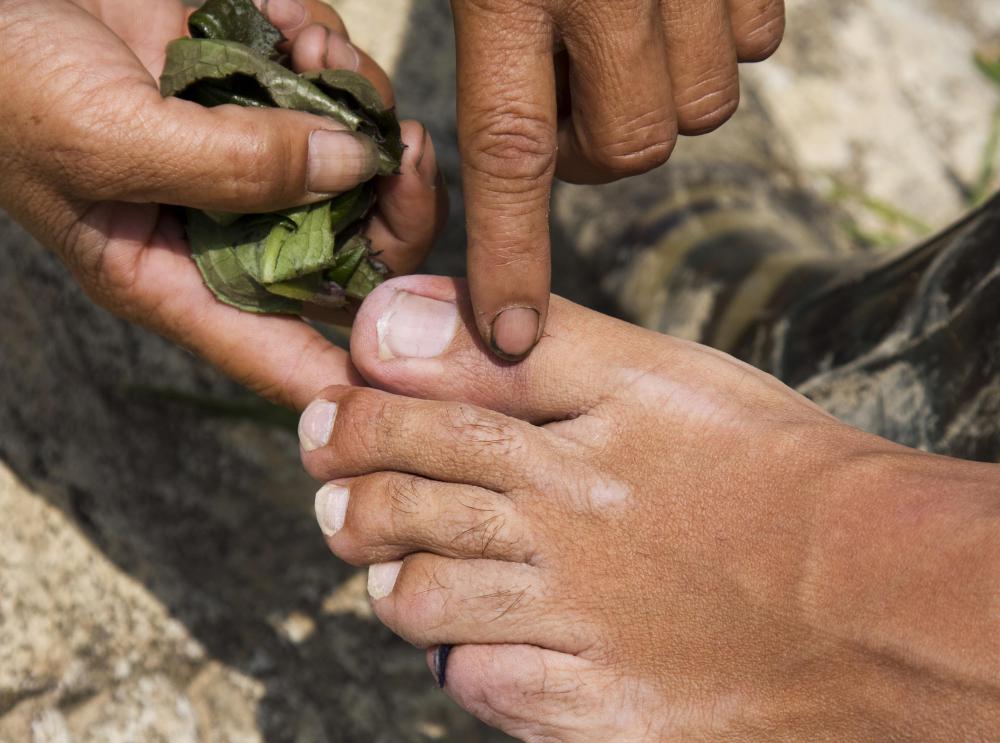At WiseGEEK, we're committed to delivering accurate, trustworthy information. Our expert-authored content is rigorously fact-checked and sourced from credible authorities. Discover how we uphold the highest standards in providing you with reliable knowledge.
What Is the History of Homeopathy?
The history of homeopathy can be traced to 1779, when Dr. Samuel Hahnemann earned a medical degree and began experimenting with diluted substances to cure disease. This German physician developed “the law of similars,” which remained the basic premise throughout the history of homeopathy. For a treatment to be effective, it must produce symptoms of the disease itself, Hahemann theorized during his 50 years practicing homeopathic medicine.
Homeopathy evolved from typical treatments used in the late 18th century, which was rife with superstition about why people became ill. Doctors of the era used vomiting, enemas, bloodletting, and herbs to rid the body of disease. Many patients got worse and died from these treatments.

Dr. Hahnemann became interested in the history of homeopathy while translating another doctor’s thesis into German. He experimented with dilutions of cinchona bark, an accepted treatment for malaria at the time. After several days, Hahnemann developed pain and fever, considered the early warning signs of malaria. He concluded a drug must produce symptoms of the disease before becoming effective. Some doctors denounced these theories, including American physician and author Oliver Wendell Holmes.

Hahnemann’s findings led to the opening of hundreds of homeopathic hospitals and schools throughout the world. Homeopathy gained popularity because fewer people died from these less toxic remedies. At this time in the history of homeopathy, traditional doctors still focused on studying disease and options for cures.
In the early 20th century, discoveries emerged about how germs contribute to disease. Interest in homeopathy began to wane and schools teaching this form of medicine began closing. A resurgence in homeopathy use surfaced in the 1970s as people became interested in holistic approaches to disease.
Modern homeopathic practices employ more than 3,000 remedies for various ailments. Homeopathy defines remedy as the use of a certain substance to treat disease, which is different from the traditional meaning of using medicine to cure illness. Substances might come from plants, minerals, animals, and synthetic products that are highly diluted. Some practitioners prescribe diseased bodily fluids, including blood, urine, and feces in minute doses, called nosodes. Other homeopathic treatments use collected rainwater as a remedy.
In India, the history of homeopathy goes back to 1835, when the Romanian doctor John Martin Honigberger was called to treat an influential maharaja for swelling feet and paralyzed vocal cords. The maharaja was cured and so impressed that he ordered homeopathy treatment for a horse suffering a leg ulcer. Dr. Honigberger later became known as an expert in the treatment of cholera in India.
AS FEATURED ON:
AS FEATURED ON:












Discuss this Article
Post your comments